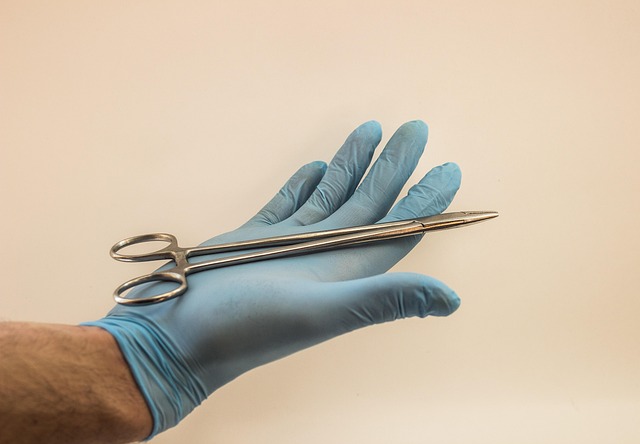Warts, caused by HPV, vary in type and location. Consulting an experienced wart removal surgeon is key for effective treatment, especially in sensitive areas like genitals. Treatment options range from topical creams to advanced techniques like laser therapy and cryotherapy. Proper post-removal care includes cleanliness, hand hygiene, and avoiding contaminated surfaces. Surgical intervention may be advised for severe or sensitive warts.
Wart removal doesn’t have to be a daunting process. With the right guidance, you can bid farewell to unsightly warts for good. This comprehensive guide provides a step-by-step approach to achieving successful wart removal, from understanding the causes and types of warts to exploring various treatment options, including topical creams and advanced laser therapy. Consult an experienced wart removal surgeon for personalized advice and ensure optimal outcomes with proper post-treatment care and prevention strategies.
- Understanding Warts: Causes and Types
- Consulting an Experienced Wart Removal Surgeon
- Treatment Options: Topical Creams to Laser Therapy
- Post-Treatment Care and Prevention Strategies
Understanding Warts: Causes and Types

Warts are small, rough bumps that can appear anywhere on your skin, caused by an infection with certain types of human papillomavirus (HPV). While they are generally harmless, warts can be unsightly and sometimes uncomfortable. There are many types of warts, including common warts, plantar warts, and genital warts. Common warts typically appear on the hands and face, while plantar warts grow on the soles of the feet. Genital warts, as the name suggests, affect the genital areas and can be transmitted sexually. An experienced wart removal surgeon at clinics like Canterbury Wart Clinic or Coventry Wart Clinic can offer expert advice tailored to your specific type of wart.
The causes vary across different wart types, but all involve HPV infection. Common warts are usually caused by HPV types 1 or 2, while plantar warts are often linked to HPV type 5. Genital warts are primarily caused by HPV types 6 and 11. It’s important to distinguish between these types as treatment options may differ, especially for genital warts which require professional medical attention due to their sensitive nature and potential health implications. Understanding your wart type is crucial when considering private wart removal epsom or any other treatment approach.
Consulting an Experienced Wart Removal Surgeon

When considering wart removal, consulting an experienced wart removal surgeon is a crucial step. These specialists have the training and expertise to offer a range of effective treatments, from surgical options to modern, non-surgical methods. They can provide tailored advice based on the type, size, and location of the warts, as well as your individual needs and preferences.
Choosing an experienced wart removal surgeon like those available at private clinics in cities like Doncaster ensures access to advanced techniques and technologies. Comparing surgical vs non-surgical options with a professional will help you make an informed decision. Modern solutions for cosmetic wart concerns have significantly evolved, offering safe and efficient ways to address unsightly warts while minimising recovery time and potential scarring.
Treatment Options: Topical Creams to Laser Therapy

When it comes to treating warts, there are a variety of options available, each with its own set of benefits and considerations. Experienced wart removal surgeons often recommend starting with topical creams, which are easily accessible and can be applied at home. These over-the-counter medications contain active ingredients like salicylic acid that work to soften and eventually remove the wart by dissolving its outer layers.
For more stubborn or widespread cases, professional treatments such as cryotherapy (freezing), laser therapy, or surgical excision might be required. While these methods may involve a visit to a private wart removal Essex Southend-on-Sea, Chelmsford, or Merseyside St Helens clinic, they offer more precise and targeted approaches. Laser therapy, for instance, uses concentrated light energy to burn away the wart, while cryotherapy employs extreme cold to destroy the affected tissue. These advanced techniques are usually recommended by experienced surgeons when other methods have proven ineffective.
Post-Treatment Care and Prevention Strategies

After successful wart removal, proper post-treatment care is essential to ensure optimal healing and prevent reoccurrence. It’s recommended to keep the treated area clean and dry, avoiding any strenuous activities or exposure to harsh chemicals for a few days. This gentle approach allows the skin to recover while strengthening its natural defenses against future warts.
Additionally, implementing preventive strategies is crucial, especially if you’ve experienced recurring warts. Regular hand hygiene, including frequent handwashing with soap and water, is a fundamental practice. Using hand sanitizers regularly can also help kill surface-level viruses. At the Bradford Wart Clinic, we advise patients to be mindful of their environment, avoiding contact with surfaces that may harbor the virus, particularly in public spaces. If you notice any new warts or signs of infection, promptly consult an experienced wart removal surgeon for reevaluation and appropriate follow-up care. When to consider surgical intervention for warts depends on various factors, including the size, location, and severity. Wart removal procedures for sensitive areas require specialized techniques to ensure safety and effectiveness, ensuring a smooth recovery process.
Removing warts effectively involves a combination of understanding their nature, consulting the right medical expert, and choosing suitable treatment options. From topical creams to laser therapy, each method has its merits and should be considered based on severity and personal preference. After treatment, proper care and prevention strategies are crucial for avoiding future warts. Remember, an experienced wart removal surgeon can provide valuable guidance tailored to your needs, ensuring the best possible outcome.
